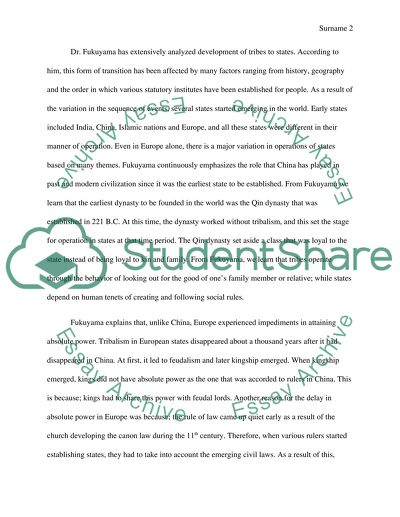Cite this document
(“Book Review for Dr Fukuyamas Book; The Origins of Political Order Report/”, n.d.)
Book Review for Dr Fukuyamas Book; The Origins of Political Order Report/. Retrieved from https://studentshare.org/literature/1581739-book-review-for-dr-fukuyamas-book-the-origins-of-political-order
Book Review for Dr Fukuyamas Book; The Origins of Political Order Report/. Retrieved from https://studentshare.org/literature/1581739-book-review-for-dr-fukuyamas-book-the-origins-of-political-order
(Book Review for Dr Fukuyamas Book; The Origins of Political Order Report/)
Book Review for Dr Fukuyamas Book; The Origins of Political Order Report/. https://studentshare.org/literature/1581739-book-review-for-dr-fukuyamas-book-the-origins-of-political-order.
Book Review for Dr Fukuyamas Book; The Origins of Political Order Report/. https://studentshare.org/literature/1581739-book-review-for-dr-fukuyamas-book-the-origins-of-political-order.
“Book Review for Dr Fukuyamas Book; The Origins of Political Order Report/”, n.d. https://studentshare.org/literature/1581739-book-review-for-dr-fukuyamas-book-the-origins-of-political-order.


